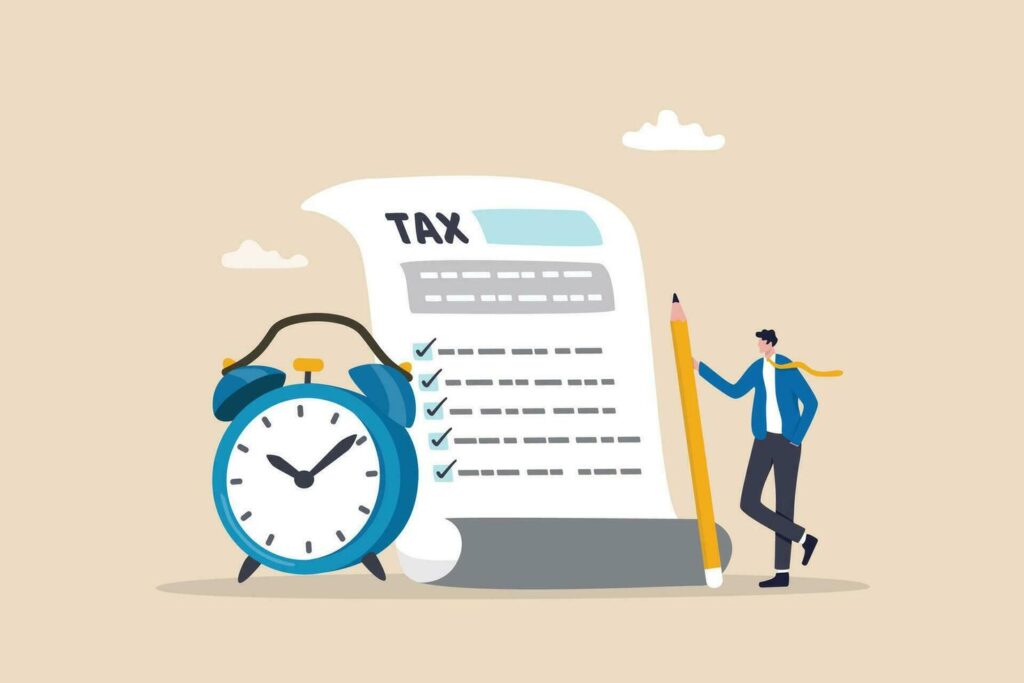Tax planning is a crucial aspect of financial management that extends beyond the month of April. By adopting a strategic approach to taxes, individuals and businesses can unlock numerous benefits and ensure long-term financial stability. Understanding the basics of tax planning and enlisting the help of a tax strategist are essential components of this process.
Understanding Strategic Tax Planning
Tax planning involves proactive measures taken throughout the year to optimize one’s tax situation and minimize tax liability. It goes beyond simply filling out tax forms and can make a significant difference in one’s financial well-being with assistance of tax planner. There are several crucial aspects to consider when embarking on this strategic approach.
The Basics of Tax Planning
At its core, tax planning revolves around understanding the tax laws and regulations that apply to your situation. This involves staying up to date with relevant changes in tax laws and utilizing available deductions and credits to your advantage. By maximizing your tax savings, you can keep more money in your pocket.
The Role of a Tax Strategist
A tax strategist is a skilled professional who can guide you through the complexities of tax planning. They have extensive knowledge of tax laws and regulations and can help you develop a personalized tax strategy that aligns with your financial goals. Their expertise can be invaluable in optimizing your tax situation.

However, tax planning is not just about crunching numbers and finding loopholes. It requires a deep understanding of your financial goals and long-term objectives. A tax strategist takes into account your unique circumstances, such as your income sources, investments, and future plans, to create a comprehensive tax plan that goes beyond short-term gains.
Furthermore, a tax strategist can provide valuable insights into the ever-changing tax landscape. Tax laws are constantly evolving, and what may have been a viable strategy in the past may no longer be effective. By staying up to date with the latest tax regulations and industry trends, a tax strategist ensures that your tax plan remains relevant and optimized.
Additionally, a tax strategist can help you navigate complex tax situations, such as international tax obligations or business-related tax planning. They have the expertise to handle intricate scenarios and can provide guidance on how to minimize tax liability while remaining compliant with all applicable laws and regulations.
Ultimately, strategic tax planning is about taking a proactive approach to your financial well-being. By working with a tax strategist, you can ensure that you are making informed decisions that align with your goals and maximize your tax savings. It is an investment in your financial future that can yield significant returns.
The Importance of Year-Round Tax Planning
Adopting a year-round approach to tax planning offers numerous advantages, far surpassing the stress of last-minute tax preparations. By implementing proactive measures throughout the year, you can minimize surprises and effectively manage your tax liability.
Avoiding Last-Minute Tax Stress
One of the major benefits of year-round tax planning is avoiding the stress associated with last-minute tax filings. By staying organized and keeping track of your financial documents throughout the year, you can reduce the burden of rushing to meet tax deadlines and ensure accuracy in your filings.
Maximizing Deductions and Credits
Year-round tax planning provides ample opportunities to identify and maximize deductions and credits that you may qualify for. By staying informed about available tax incentives, you can make strategic financial decisions and optimize your tax savings.
Furthermore, taking a proactive approach to tax planning allows you to carefully analyze your financial situation and make adjustments as needed. By regularly reviewing your income, expenses, and investments, you can identify potential tax-saving opportunities that may have otherwise gone unnoticed.
For example, let’s say you have been contributing to a retirement account throughout the year. By keeping track of your contributions and understanding the tax implications, you can ensure that you are taking full advantage of any available tax deductions or credits related to retirement savings.
In addition, year-round tax planning gives you the opportunity to stay updated on changes in tax laws and regulations. Tax laws are constantly evolving, and by staying informed, you can adapt your financial strategies accordingly. This knowledge can help you navigate any potential tax pitfalls and ensure compliance with the latest tax requirements.
Moreover, by engaging in year-round tax planning, you can establish a strong relationship with a trusted tax advisor or accountant. This professional can provide valuable guidance and advice tailored to your specific financial situation. They can help you develop a comprehensive tax strategy, answer any questions you may have, and ensure that you are making informed decisions that align with your long-term financial goals.

Benefits of Strategic Tax Planning
Strategic tax planning offers various benefits that go beyond immediate tax savings. By implementing a well-thought-out tax strategy, individuals and businesses can achieve financial stability, predictability, and reduce their overall tax liability.
Financial Stability and Predictability
By implementing a strategic tax plan, you can create a predictable financial framework. This stability allows for better financial planning and the ability to allocate resources effectively. Instead of being caught off guard by unexpected tax bills, you can be proactive and plan for your financial future.
Imagine having the peace of mind that comes with knowing your tax obligations in advance. With strategic tax planning, you can gain a clearer understanding of your financial standing and make informed decisions about investments, savings, and expenditures. This level of financial stability allows you to navigate economic uncertainties with confidence, ensuring that you are well-prepared for any potential financial challenges that may arise.
Minimizing Tax Liability
Strategic tax planning aims to minimize your tax liability by identifying opportunities to reduce taxable income and take advantage of deductions and credits. By working closely with a tax strategist, you can implement effective tax-saving strategies tailored to your unique situation.
One of the key benefits of strategic tax planning is the ability to legally optimize your tax position. By leveraging available tax incentives, exemptions, and credits, you can significantly reduce your overall tax burden. This means more money in your pocket to invest, save, or reinvest back into your business. With the guidance of a skilled tax strategist, you can navigate the complex tax landscape and uncover hidden opportunities for tax savings that you may have otherwise missed.
Moreover, strategic tax planning allows you to stay compliant with tax laws while maximizing your tax benefits. By staying up to date with the latest tax regulations and utilizing effective tax planning techniques, you can ensure that you are taking advantage of every available opportunity to minimize your tax liability. This proactive approach not only helps you save money but also provides you with a sense of confidence and assurance that you are meeting your tax obligations in the most efficient and advantageous way possible.
Implementing a Strategic Tax Plan
Developing and maintaining a strategic tax plan requires a proactive approach and continuous review. By following a systematic process, you can ensure the effectiveness of your tax strategy and make adjustments as needed.
When developing a tax strategy, it is important to assess your financial goals comprehensively. This involves not only considering your current financial situation but also anticipating future changes that may impact your tax obligations. By taking a holistic approach, you can create a tax plan that aligns with your long-term objectives.
Steps to Develop a Tax Strategy
Creating a tax strategy involves assessing your financial goals, understanding your tax obligations, identifying potential tax-saving opportunities, and creating a comprehensive plan. It is essential to involve a qualified tax professional who can guide you through this process and help you navigate the complexities.
Once you have identified your financial goals and tax obligations, it is crucial to analyze potential tax-saving opportunities. This can include exploring tax credits, deductions, and incentives that are relevant to your specific circumstances. A tax professional can help you identify these opportunities and determine how they can be integrated into your overall tax strategy.
Maintaining and Adjusting Your Tax Plan
Once you have implemented your tax plan, it is necessary to continually review and adjust it as necessary. As tax laws and regulations change, it is crucial to adapt your strategy to maximize your tax savings continually. Regular consultation with a tax strategist can ensure that your plan remains effective and aligned with your financial objectives.
In addition to staying up-to-date with tax laws, it is also important to regularly review your financial goals and circumstances. Life events such as marriage, divorce, the birth of a child, or a significant change in income can all impact your tax situation. By regularly reassessing your tax plan, you can ensure that it remains relevant and optimized for your current needs.
Furthermore, ongoing communication with your tax professional is key to maintaining an effective tax plan. By keeping them informed of any changes in your financial situation or goals, they can provide timely advice and make necessary adjustments to your strategy. This collaborative approach ensures that your tax plan remains dynamic and responsive to your evolving needs.

The Future of Tax Planning
As tax laws and regulations evolve, it is essential to stay informed and anticipate potential changes that may affect your tax situation. By taking a forward-thinking approach and incorporating flexibility into your tax planning, you can position yourself for long-term success.
Anticipating Tax Law Changes
Tax laws are subject to change, and staying on top of these changes allows you to adjust your tax plan accordingly. By actively tracking legislative updates and working closely with a tax strategist, you can ensure that your tax strategy remains compliant and optimized for maximum savings.
For example, let’s say you are a small business owner who has been taking advantage of certain tax credits. However, with the possibility of new tax legislation being introduced, it is crucial to stay informed about any potential changes that could impact these credits. By staying ahead of the curve, you can make the necessary adjustments to your tax plan, ensuring that you continue to benefit from these credits or explore alternative strategies to minimize your tax liability.
Long-Term Benefits of Strategic Tax Planning
The advantages of strategic tax planning extend beyond immediate tax savings. Consistently implementing an effective tax strategy can positively impact your financial situation in the long run. By optimizing your tax liability over time, you can free up resources that can be reinvested or directed towards achieving your financial goals.
For instance, let’s consider an individual who strategically utilizes tax-advantaged retirement accounts such as a 401(k) or an IRA. By contributing to these accounts and taking advantage of any employer matching contributions, not only can they reduce their taxable income in the present, but they can also build a substantial nest egg for retirement. This long-term approach to tax planning ensures financial security and provides peace of mind for the future.
Furthermore, strategic tax planning can also help you navigate life’s major milestones. Whether you are planning to start a family, buy a home, or start a business, understanding the tax implications of these decisions is crucial. By incorporating these considerations into your tax strategy, you can make informed choices that align with your overall financial goals.
In conclusion, adopting a strategic approach to tax planning offers year-round benefits that extend far beyond the month of April. By understanding the basics of tax planning, seeking expert guidance, and implementing a proactive tax strategy, individuals and businesses can maximize their tax savings, achieve financial stability, and position themselves for long-term success.
Other resources: Crafting a Plan for Financial Efficiency and Success
